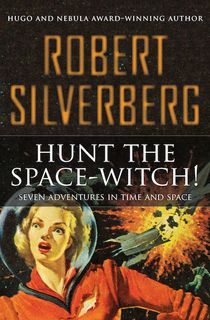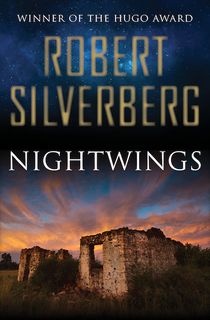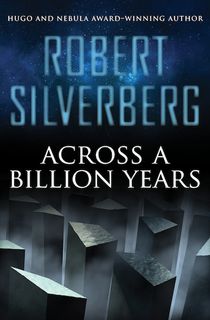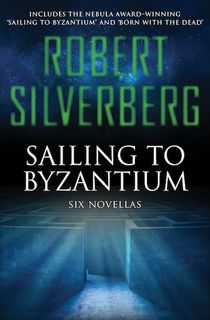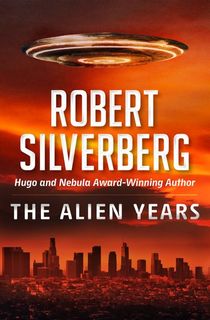Earlier this month, news broke that Academy Award-winning 12 Years a Slave screenwriter John Ridley will direct an adaptation of Robert Silverberg's time travel short story "Needle in a Timestack." Following this announcement,The Portalist's sci-fi and fantasy consultant Betsy Mitchell spoke to Silverberg at his house in the Oakland Hills about the upcoming movie and the role time travel plays in his work.
Check out Silverberg's thoughts on time travel and sci-fi adaptations below—then download one of his classic books!
Filming has begun on the movie version of your story “Needle in a Timestack.” Can you tell us a little about the story?
The premise is that commercial time travel is as readily available as the internet is for us, and people keep maliciously changing each others’ pasts by going back and unhappening certain crucial events. The protagonists are a married couple who are struggling to keep their marriage intact while it is being hacked by a disgruntled suitor.
RELATED: Time Travelers Visit 1930s Germany and Disrupt History
The director, John Ridley, is best known for the movie Three Kings, for which he wrote the story, and 12 Years a Slave, which earned him an Oscar for Best Adapted Screenplay. Do you know what attracted him to “Needle in a Timestack”?
He read it in Playboy long ago—it was published there in 1983—and said, “I want to make a movie out of that.” But once he got into a position to do that he couldn’t, because it had been optioned and later bought outright by Miramax. So it was tied up, and he was not a Miramax person, so it was in limbo for years. Vince Gerardis, my lovely Hollywood agent, managed to get the rights back. At that point John had had a huge success with 12 Years and Miramax asked him, is there anything else you want to do, and he said, “Needle in a Timestack.” So they optioned it the second time, hired Ridley, and then let the option run out. But he was hooked, and went and found another producer, who is now producing. He’s deeply attached to the project—not just in the Hollywood sense, he really loves it. He wrote the screenplay and apparently the screenplay is quite faithful to the story.

John Ridley
Photo Credit: Wikimedia CommonsWhat previous experiences have you had with your works being filmed?
The story called "Amanda and the Alien" was filmed for HBO about 15 years ago, and the director invited me to come down to LA and just drop in on the set, and I wound up with a non-speaking role.
Then there was a Robin Williams movie called The Bicentennial Man, and that was adapted from a novel that I expanded from Isaac Asimov’s story of the same name. I did go down to watch them filming it, and Williams was quite a sight—he played the robot. It’s about one of Isaac’s robots who wants to be human, and the best way that he can figure out how to be human is to become mortal, so they remove whatever robot feature it is that prevents him from dying. Isaac himself was dying as I wrote the book. Whenever I talked to him I’d say, “How are you, Isaac?” and he’d say, “I’m waiting to die.” It was quite a weird time.
RELATED: Hear Stephen King & George R.R. Martin Discuss Their Craft
So this is the third Silverberg movie, but it’s the first time that I’ve had a movie that’s all my own that would be other than a movie for television. The Bicentennial Man is basically Isaac’s story and I can’t claim credit for the concept, but this is all my own.
Your writing has dealt with time travel many times over the years. What is it about the concept that fascinates you?
It has always seemed to me the essence of what science fiction is about, offering liberation from the bonds of the quotidian, the freedom to move in unhindered leaps through the unknown realms of the future and the nearly as mysterious realms of the past. There often isn’t much science in it, but there’s a powerful element of speculation, a “what-if” element, that allows a sufficiently skillful writer to transcend mere scientific or philosophical implausibility for the sake of telling a good story and to arouse the reader’s sense of wonder.
RELATED: It's Only a Matter of Time: Time Travel in Fiction and Real Life
“Needle in a Timestack” faces head-on the paradox that often bedevils time travel stories. If someone changes our past, will the “we” who now live in the present even realize it? Doesn’t writing that kind of story make your brain hurt?
Yes! It’s a frightening story. The genesis of the story—I was at a convention, in the dealer room, standing with my friend Bill Rotsler, and some really annoying kid came up to us. He was like the first draft of the teenage Harlan Ellison. And after he had been bothering us for a couple of minutes, Bill said to him, “Go away, kid, or I’m going to change your future.” And I said, “Gee, don’t change his future. Change his past!” And I stopped and thought and said hey, that’s a good story idea!”
Time travel paradoxes are fascinating. I wrote a whole novel called Up the Line, in which I pulled forth every time-travel paradox I could think of, and there were so many that I was two-thirds of the way through the novel when I realized that under the rules I had established for the book I couldn’t reach the ending I had in mind, and I had to stop and rewrite the whole middle of the book, which annoyed me greatly. That’s the basic time-travel paradox novel. Heinlein did the basic time-travel story “By His Bootstraps” when I was a little boy. It’s a wonderful game to play, the time-travel story.
What novel-length works have you written that involve time travel?
Aside from Up the Line, there’s Son of Man, which takes place billions of years in the future—take a man from the 20th century and drop him down in four billion A.D. Another is Hawksbill Station, which is moving ahead on being filmed as well. It uses the remote past as a prison for political prisoners—they ship them back into the Cambrian on a one-way trip.
RELATED: 13 Classic Science Fiction Books Everyone Should Read
And then there’s “Slaves of the Star Giants,” which I wrote in 1956, where a man is transported to a far-future Earth ruled by monstrous aliens. It’s available in an omnibus volume called Hunt the Space-Witch!
About 10 years ago you announced that after five-plus decades of writing challenging, beloved, and award-winning fiction, you had finished your last project. Any twitches of the authorial fingers since then? Do you miss writing?
No. I’m really done with it. I stay visible—I go to conventions, I write a column for Asimov’s magazine, I see to it that as much as my work is available as possible, but I don’t miss it.
Can't wait for the movie? Check out some of Silverberg's other great titles below!
This post is sponsored by Open Road Media. Thank you for supporting our partners, who make it possible for The Portalist to continue publishing the stellar stories you love.
This interview has been edited and condensed for clarity.
Featured photo: Robert Silverberg in his office, in front of a wall of his titles. Via Betsy Mitchell.

.jpg?w=640)

